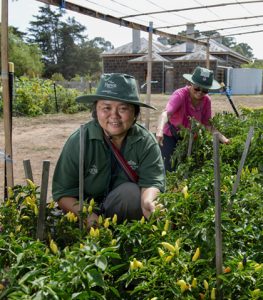Migrants are quiet environmentalists – study finds
People from diverse communities are quiet achievers when it comes to urban environmentalism and often practice sustainability at home, a new study has found.
Researchers at Western Sydney University have found that people from ethnic minorities are often under-represented in organised urban environmental groups.
 “The organised environmental movement is largely a white, middle-class space. But our research shows migrants care for nature in other ways – including living sustainably in their everyday lives,” researchers Dr Sukhmani Khorana and Claudia Sirdah said.
“The organised environmental movement is largely a white, middle-class space. But our research shows migrants care for nature in other ways – including living sustainably in their everyday lives,” researchers Dr Sukhmani Khorana and Claudia Sirdah said.
“This is most obvious on the domestic front. From repurposing goods to keeping vegetable gardens and being careful with electricity use, migrants are highly likely to practise sustainable living – sometimes without even realising it,” they said.
The research says migrants are often blamed for making the problem worse, such as by adding to congestion.
“It’s important to break this circuit and recognise migrants’ positive contribution to environmental protection. Migrants can successfully be harnessed to help with environmental causes. Doing this will require learning from migrants, and helping them feel welcome in the green movement,” the researchers said.
The research sought to provide an in-depth picture of young first- and second-generation Australian migrants who care about the environment.
It found ethnic minorities are often under-represented in the urban environmental movement.
“This can lead to suggestions migrants do not actively care for the environment – either due to apathy, or because they are preoccupied with climbing social and economic ladders in their new country,” the researchers said.
“But my research found first- and second-generation migrants in Australia care for the environment in particular ways, largely focused on the domestic front,” Dr Khorana said.
“We found the participants actively and consciously carried out environmental care practices, mostly in the domestic sphere. From a young age, first- and second-generation participants continued austerity and waste-consciousness inherited from their parents,” she said.
The practices included: recycling and repurposing consumable items; careful water and electricity use; home vegetable gardens and composting; and, ethical purchase and consumption.
The research found some second-generation migrants said their parents were “accidentally” environmentally friendly. For example, some parents who had experienced financial hardship were frugal with money and goods. Others from an agricultural background remained connected to the land through gardening.
Second-generation migrants were much more likely to make the environmentally-motivated choice to become vegan and/or vegetarian.
And they were slightly, but not significantly, more engaged with outward forms of environmental activism such as attending protests and marches, the researchers said.
See the full research here:












